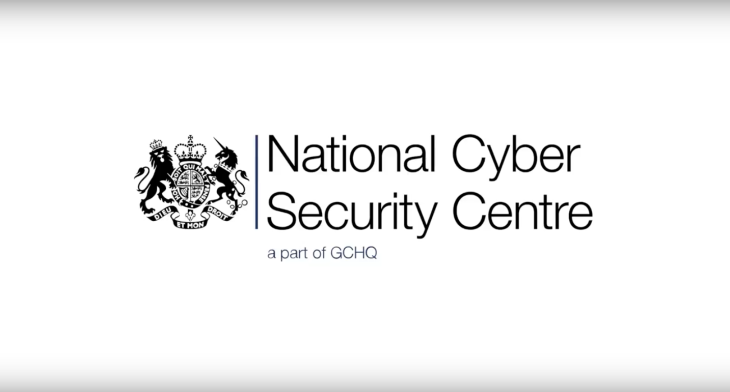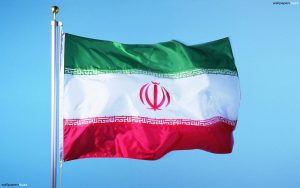British Foreign Secretary Lord Cameron gave his 1st major speech in the role at the UK National Cyber Security Centre (NCSC) on May 9, 2024.
Full Transcript:-
I have been Foreign Secretary for almost 6 months. And I have been determined to make every day count.
I have visited 33 countries, 1 Overseas Territory, and criss-crossed 6 continents. I lead a Department working hard to respond to crises, counter threats, champion development, and boost UK jobs.
I like to say being Prime Minister was a great apprenticeship for this job. But being Foreign Secretary is not entirely the same.
Indeed, precisely because you are so often on the road, leading a large organisation, you must make doubly sure not to confuse activity with action.
So let me use this speech to take a step back.
Economics, Politics & Foreign Policy
My starting point is that we cannot divorce foreign policy from economic performance.
Investing more overseas requires a growing economy. And to be taken seriously, you need to show the dynamism of your own economy and its capacity for growth and renewal.
From this room, you can see the 4 iconic chimneys of Battersea Power Station. I can remember standing there as Leader of the Opposition, launching the 2010 election manifesto. It was a derelict building, left vacant and crumbling for decades.
Today, it is transformed. And that is thanks to our drive to secure Malaysian investment and offer determined government support, hundreds of offices and flats, shops and restaurants now sit beneath those towers. And it demonstrates our continued attractiveness to overseas investors.
But nor can we divorce foreign and economic policy from domestic politics. All over the western world, we see the rise of political movements that want us to pull up the drawbridge, claiming that we will be better off if we focus purely on domestic concerns.
I believe these movements are profoundly wrong. Not just because Britain is an outward-facing nation, with almost 1 in 10 of us living abroad, and a set of interests and connections that are truly global, not limited to any one region or continent. But because what happens abroad matters directly to our citizens.
However, our approach must not be to ignore the rise of these movements. It must be to deal with what has caused them to grow, so we can engage with the world and therefore safeguard our national interests.
I believe the 2 biggest drivers are clear. One, failing to control borders properly and tackle illegal immigration. And second leaving too many people in too many places behind, cut off from the uneven benefits of globalisation.
Any political party that fails to address these drivers will find itself incapable of governing effectively and getting things done.
That is why we are fixing our immigration system, breaking the business model of smuggling gangs. And why we need to ensure the whole country shares in the benefits of long-term growth.
And the role of Foreign Secretary is not separate from this work: it is integral to it. Ultimately what guides everything I do as Foreign Secretary is Britain’s prosperity and Britain’s security.
Earlier this year I returned to the Berlin Wall. I remember the days of its fall as if it were yesterday. Visiting Germany with the Konrad Adenauer Foundation. Meeting dissidents who had kept the flame of freedom alive behind the Iron Curtain. Hacking off a chunk of the Wall – a piece of history – for myself.
Together with travelling in the Soviet Union between school and university, these were defining events in my political development. As the era of state socialism was crumbling, the sense of optimism, of possibility, was infectious.
Contrast that with today.
War in the heart of Europe. From Tallinn to Warsaw, Prague to Bucharest, a chill has once more descended across the European continent. Those nations closest to Russia seeing what is happening in Ukraine and wondering if they will be next.
And not far from Europe, war rages in the Middle East, as Israel seeks to defend itself and bring the hostages home, while innocent citizens in Gaza endure a crisis that will only worsen if aid cannot reach them, safely.
All this while there are conflicts in 18 countries in Africa. This is a world more dangerous, more volatile, more confrontational, than most of us have ever known.
We need to face up to that fact and act accordingly. Not in a year or two. Not in a few months. But now.
The Courage to Act
Returning to frontline politics, what stands out to me is how many reasons are found for us not to act. It too often feels as if the fundamental change in the world has not yet been met with a fundamental change in how many in the free world are thinking and acting.
Both in Britain and the wider world, there are too many who adopt a kind of defensive crouch. Not just those I have already mentioned who want to pull up the drawbridge. But also those who think we cannot act, claiming we have become too weak, not powerful enough militarily or effective enough economically. Or those who will not act, so fixated are they on the risks– be it of escalation, unintended consequences, legal jeopardy, or simply causing offence.
Fear of making the wrong choice leads to another meeting or another strategy paper, even when not acting is actually the worst choice of all.
While, as the Prime Minister said in Warsaw recently, an axis of authoritarian states – like Russia, Iran, North Korea and China – is increasingly acting together in an attempt to undermine us and our allies and the world order on which we depend.
My conviction is that we, with our partners, can choose to make a difference.
Entering politics in the 1980s, it was not at all obvious how or when the West would prevail over the Soviet Union. Some urged us to reduce our defences or abandon the nuclear deterrent. But we stood firm and it worked.
Similarly, towards the end of my time as Prime Minister, it was not obvious we could defeat Daesh. Some declared that an Islamic State in control of vast swathes of Iraq and the Levant was here to stay. That an intervention would only see us bogged down in the Middle East. But together with our friends and allies, we drove their so-called caliphate right back.
We in Britain, and in the wider West, we have agency. The question is whether we have the courage to use it. The courage to act.
So how then should we act? I see 6 points which really matter if we are to rise to the challenges we face.
First, we need to make security our top priority.
If you want a picture of the dangers in the world, you can actually look right here at home in the last few months. Attacks on our democracy from China, including spying on the Electoral Commission and cyber targeting of our Members of Parliament. Reminders of the wide-ranging, covert Russian playbook, including a suspected sabotage attack on a warehouse in east London just last week. And – as the Director General of MI5 has made clear – numerous Iranian plots to assassinate British or UK-based individuals perceived as enemies of the regime, again right here in the UK.
As Prime Minister, I was proud to host the 2014 NATO Summit in Wales, at which all Allies committed to spend at least 2% of GDP on defence. And I am proud to speak today at the National Cyber Security Centre, which we set up to make Britain the safest place to live and work online.
Today, as the threat has grown and evolved, we in government need to do even more to prioritise security.
And so we have passed the National Security Act and a new Investigatory Powers Act, so we can defend ourselves against espionage more effectively. We have introduced the National Security Investment Act, so we can screen investment into our critical national infrastructure. We have prepared the Foreign Influence Registration Scheme, so we can bolster our resilience here in Britain against covert foreign influence.
And, crucially, the Prime Minister has committed to spend 2.5% of GDP on defence – the biggest investment in defence for a generation, and increased defence R&D get at least 5% of the defence budget, so we stay at the cutting edge of defence technology.
It is vital we sustain this focus on security, doing what is required to harden our defences.
Second, we need to be bolder in standing up for what we believe in.
The national interest defines our foreign policy. Some try to portray this as somehow unprincipled. As if by putting the national interest first, we will sacrifice important values.
Nothing could be further from the truth. It is profoundly in our national interests to defend those core beliefs.
Freedom. The rule of law. Respect for human rights and human dignity. And to defend the core principles of an open international order.
Right not might. Sovereignty and territorial integrity. Freedom of navigation.
These principles are not some mere abstractions. Words solemnly proclaimed in the UN Charter, Sustainable Development Goals or other international agreements. Rather they are vital foundations for British and global security and prosperity.
All the world’s citizens benefit when freedoms are upheld. Sovereignty is respected. And commerce flows freely around the globe.
So we, our allies and our partners must stand up and defend them.
Our adversaries openly challenge these principles. They have no qualms at distortions and even outright lies in the media. And they use new tools and techniques to distract and mislead.
We must be bolder in combating their poisonous methods of deceit.
That is what Britain and America did by publicising of our intelligence before Putin’s illegal invasion. It was an unprecedented step. And made it absolutely clear what Putin was planning to do: assault a neighbour, without a scrap of justification. We in the West need to undermine and expose the malign networks that Russia uses to spread its lies.
Over the last 5 years, Britain’s invested £600 million in this effort.
Funding the BBC World Service, which reaches over 300 million listeners each week, backing free media and the free flow of information. Supporting independent journalism in places like Moldova and Bosnia, where Russia seeks to bully and bribe their way to manipulating media and undermining politics.
Our adversaries also strive to undermine global trust in these beliefs and principles by attacking our own record. They gleefully accuse the West of double standards.
I think we should be frank in our response. Yes, the suffering in Gaza is appalling. But an unprovoked war against an independent country like Ukraine that poses no threat is wholly different from the conflict that has grown from the brutal attacks of 7th October.
And in each case, we are consistently pursuing the fastest route to a sustainable peace consistent with the principles of the UN Charter. Every country in the world actually cares about principles like sovereignty and territorial integrity.
And of course our adversaries say that we did not invest in the Global South. Nonsense. And it is the West who is funding the key parts of the global system doing the most to improve lives of people around the world.
How much has Moscow given to the UN’s Central Emergency Relief Fund? Seventy-four times less than Britain’s contribution.
How much does Tehran invest in eradicating malaria? Absolutely nothing to the Global Fund dedicated to eliminating this killer disease. Britain is the Fund’s third biggest donor – and has played a huge role in developing vaccines now poised to save many more lives.
How much has Pyongyang do to protect our oceans? Nothing like Britain’s Blue Belt, which is the largest marine protection area in the world – something that benefits not only our country, but our entire planet.
And Britain is not alone in such generosity – our closest partners, big and small, give a huge amount as well.
We are faced with a cynical assault on principles and programmes which have contributed so much to building a better world. We must fight back – and never let that cynicism win.
Third point – we need to adopt a harder edge for a tougher world
Pursuing our interests effectively means revisiting approaches to foreign policy born of good intentions and ask if they are truly fitting for the world of today. Prizing consensus over action. Not speaking out if it might upset others. Avoiding risks.
Such attitudes perhaps seemed to cost us less in a more forgiving age. But if Putin’s illegal invasion teaches us anything, it must be that doing too little, too late, only spurs an aggressor on.
And too often this lesson not having been learned. Take the Red Sea, where ship after ship from a whole of countries have been attacked. While many countries have criticised the Houthi attacks, it is actually only the US and Britain that have been willing and able to step up and strike back at them.
Or defence spend in Europe, where still some seem unwilling to invest, even as war rages on our continent. Take women’s rights, where some are so cowed by accusations of neo-colonialism that they will not condemn practices like Female Genital Mutilation, ignoring survivors’ calls to eliminate it.
This cannot go on. We need to be tougher and more assertive:
- degrading the Houthis’ capabilities
- making 2.5% a new benchmark for NATO Allies’ defence spend
- and using travel bans to stop politicians voting in favour of FGM in the morning, and then hopping on a plane to go shopping in London in the afternoon.
And sometimes, a harder edge means being honest with ourselves. Saying yes, we want to be a country that is ambitious and progressive. But no, we cannot afford to be naïve about how best to achieve our goals.
So yes, we are open to the world, its people and ideas. But no, we will not permit criminal gangs to decide who can enter our country and undermine voters’ trust in our ability to control our borders.
By implementing our asylum partnership with Rwanda, we are acting in the national interest. And yes, we are committed to reaching net zero by 2050, and work globally to support others in meeting their own clean energy ambitions.
But no, we will not refuse to grant new licences in the North Sea for vital oil and gas – nor will we demonise other countries using their own reserves – these things when they are vital for energy independence from the likes of Putin, and part of a responsible energy transition.
Again by taking a proportionate, realistic approach to delivering our climate change goals, we are acting in the national interest.
And yes, we support free trade. But no, we will not sign a free trade deal just for the sugar rush of the press release. You only get one chance to do these properly, and it is important to get it right. Via our patient negotiation of trade deals that are real wins, we are acting in the national interest.
And yes again, we believe in free speech and freedom to protest. But no, we will not shy away from defending our democratic values. By doing things like the definition of extremism to ensure that the government does not legitimise those trying to overturn our principles, we are acting in the national interest.
Fourth, we need to have a good dose of realism.
In a much more competitive world, Britain must suffer no illusions about our place in it.
I am proud to lead the FCDO, overseeing a diplomatic network in over 160 countries and territories, and a development budget of over 8 billion pounds not to mention our incredible intelligence and security services. I am representing effectively a nation with a sovereign nuclear deterrent, a permanent seat on the UN Security Council, and a web of connections all over the world.
But Britain is not a country like the US, whose every decision we make changes the world. There are vital areas where our action is decisive, but often we are a state whose decisions and adept diplomacy can influence the approaches of others.
Realism is not defeatism – having less influence than the global superpower does not mean having no influence at all.
While away from frontline politics, I heard a comment by a leading CEO that has stuck with me ever since. Britain, he said, is big enough to matter, but small enough to be nimble. That seems right to me.
He was talking about regulation. But it can apply in so many other contexts. And it is an apt mantra for the modern world, in which new powers are emerging, and what matters is building coalitions to get things done.
Why does Ukraine call us their number one ally? Not just for the level of our support and the speed in which we delivered it, but it is how we have galvanised others.
I vividly recall my experiences in 2014. Imposing even some sanctions on Russia required painstaking negotiation. But, gradually, we have made the case for going so much further.
We have imposed unprecedented sanctions – with our allies. We have provided game-changing kit like long-range missiles and battle tanks – with our allies. We have sustained support for Kyiv into a third year of war – once more, following the vote in Congress, with our allies. And we are now maintaining our military support to Ukraine – £3 billion a year – until 2030, and beyond if necessary, and calling on our allies to join us in that pledge.
To persuade we also need to be active. A fortnight ago, I became the first Foreign Secretary to visit all 5 Central Asian states and Mongolia.
In a more contested, more competitive world, Britain needs to get out there and compete. We need to say to potential partners all over the world, if you want to make that choice to be more open, be more independent, we can help you make that choice.
We are fortunate in Britain that English is the world’s global language. For young people, speaking English acts as a passport for success, giving an edge in areas like business and finance, law and diplomacy.
That is why for instance Mongolia, a country bordering Russia and China, has made the extraordinary and brilliant decision to make English their second official language. Ukraine has launched a programme so all their civil servants can learn it. This is a great advantage for Britain – an opportunity to get the world speaking our language, in both senses of that phrase.
But sometimes we seem hesitant to recognise just what a vital tool of influence the English language can be. Sixty million people from almost every country in the world used the British Council’s free Learn English site. I have expanded the British Council’s online teaching offer in Central Asia, and today I can announce a new £1 million programme for the Council to teach English to Ukrainian civil servants.
But this should be only the beginning. I believe it should be a core part of our foreign policy and the Foreign Office’s mission to lead this global change, we will champion English learning around the globe. This year next year, long into the future.
It is battle we are winning, and if we turn up and properly fight it we will win it faster and better.
There is a fifth point.
A recognisably British attribute, but which we can sometimes fail to recognise in ourselves. That is the need to be ruthlessly practical.
As was observed by one of my predecessors, Ernest Bevin, he combined “a powerful sense of direction… rooted in moral principle” with “a streetwise pragmatism in choosing the best route forward”.
And the result, NATO, speaks for itself. As this example shows, being practical can have a hard edge, a certain ruthlessness, too. Focusing on delivering a strong, united defensive alliance, rather than hoping a newly formed UN alone could ensure our security. Facing the world as it is, not as it was or as we wish it to be.
And so yes, for instance we want the fighting to end in Gaza. But calling for an immediate ceasefire makes it no more likely. It is more practical to focus – as we have done in the UN and elsewhere, with the Israelis, and with our partners – on securing a humanitarian pause, stopping the fighting right now, so we can see hostages released, more aid delivered, then turn this into a sustainable ceasefire without a return to fighting.
And yes again, ruthlessly practical we support multilateral reform, because we want the UN and organisations like the World Trade Organisation and World Health Organisation to succeed. But we are also increasing our support for other, more nimbler organisations having impact on the ground, like GAVI or the Global Fund that does so much brilliant work on diseases.
And yes, we have made our biggest contribution ever to the Green Climate Fund to tackle climate change. But we are also making it easier for small island developing states to access this funding, helping friends across the Caribbean, who I was meeting with yesterday, and in the Pacific like Samoa, hosts of this year’s Commonwealth Summit.
I could add 2 personal examples of being practical.
Yes, I supported remaining in the EU. But I am now laser-like focused on ensuring Britain and the EU have the best possible relationship, not as members, but as friends, neighbours and partners. And I am doing all I can also to ensure Britain invests in new partnerships, such as CPTPP, a trade deal with one of the fastest growing regions of the world – the Indo-Pacific.
And yes, I am a passionate believer in the power of aid and proud of my role in helping to design the sustainable development goals and boost Britain’s aid spending. But with our overseas aid budget under pressure, I also am proud to have led the Department in publishing a groundbreaking International Development white paper, and to be pressing for reform of the multilateral development banks and greater cooperation with the private sector – so others can also step up an provide the massive funding that’s going to be required to see those SDGs through.
Finally, we need to demonstrate political will and strategic patience.
It is not enough merely to wish for a better world and hope for the best. Nor can we let talk of past failings or present risks paralyse us completely. We in the West need to see things through and see them through together.
Our adversaries today know all too well our underlying strengths. They see that the economies of Ukraine and her partners outmatch Russia’s by around 25 to 1. They can see that Sweden and Finland turned to NATO – an alliance that defends territory, not takes territory – at a moment of uncertainty. They can see the flows of talented people head in our direction from across the globe.
But they think they have homed in our greatest weakness. They believe that it is they who are more determined to succeed. That they can outlast us, can endure more pain, make more sacrifices.
We are in a battle of wills. We all must prove our adversaries wrong – Britain, and our allies and partners around the world.
We need to out-compete.
The upcoming NATO Summit must see all Allies on track to deliver their pledge made in Wales in 2014 to spend 2% on defence. And we then need to move quickly to establish 2.5% as the new benchmark for all NATO Allies.
We need to out-cooperate.
Investing in old alliances which have served us well – the transatlantic bond and our many friendships in Europe, the Five Eyes and G7, NATO and the Commonwealth.
But we also need to forge new partnerships, like the AUKUS alliance with Australia and the US, the GCAP jet project with Italy and Japan, or our JEF security collaboration with like-minded nations in northern Europe.
And, crucially, strengthening our bilateral partnerships with that great mass of countries such as those in Central Asia who, I visited last week. Who while they may not all be democratic, they see the destructive, reactionary policies of our adversaries as a threat to their security and their prosperity.
And we need to out-innovate.
Using the legal route before us to use frozen Russian assets for the benefit of Ukraine. And leaning into the modern technology that fuels both the operations in this building and much of the modern economy, as the Prime Minister did so skilfully by hosting the AI Safety Summit last year.
I know from experience – it is not straightforward to deliver these points. Dissonant voices press for different paths, easier to tread in the short-term, even as they store up problems for years to come. But I am not disheartened.
History is not pre-ordained. I am often reminded of this as Foreign Secretary. Entering my office, I pass portraits of my predecessors. The world of today looks very different to that of Bevin and Eden, Grey and Salisbury, Canning and Castlereagh. And yet each faced times of challenge and change.
Looking back, one can detect common threads, fundamental traditions, in how they acted in response. Prioritising Britain’s security. Standing up for what they believed in. Being hard-edged, realistic and practical in their pursuit of the national interest. Showing always political will. The past cannot tell us what to do today. But it can offer some guidance.
Today, we are being tested yet again. In both foreign and domestic policy, in Britain and the wider West, we are at a crossroads. If we make the right choices, act now, a bright future awaits. But if we hesitate, our adversaries will write our future instead of us.
We need to show courage. The courage to determine our own destiny. The courage to rise to this moment of peril. The courage to act.









